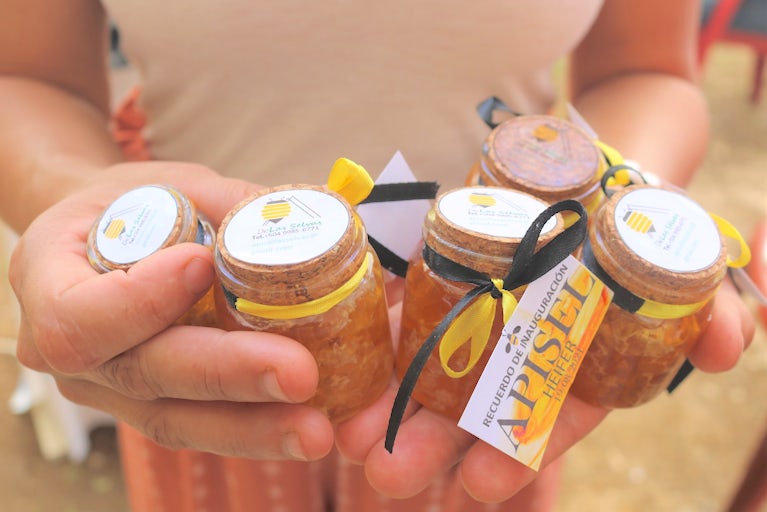
For Beekeepers in Honduras, Honey Provides a Path to a Living Income
By Heifer Honduras | August 26, 2021
May 15, 2024
When Hurricane Mitch made landfall in Central America in 1998, Honduras was already the second poorest country in the Western Hemisphere. The storm left a million Hondurans homeless, and it deepened the country’s poverty. Tens of thousands of people had no choice but to leave, crossing the border into Costa Rica and traveling north, to Mexico and the United States.
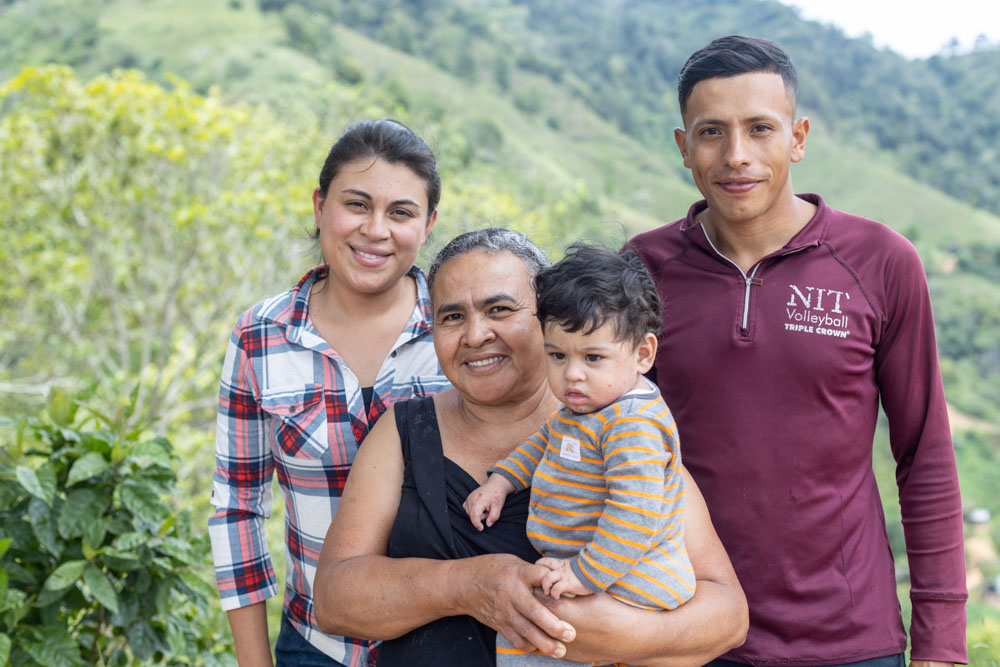
Carlos Lainez and his family, living on a remote farm in the highlands of the department of Olancho, were among the countless Hondurans cut off from essential services for weeks after the hurricane. Food and clean water were scarce. The farm had been flooded and was all but destroyed. The family’s situation had become desperate and Carlos felt he had no choice but to leave the farm — and Honduras — to find work and help them. He joined the flow of people migrating north, eventually settling in the United States.
Migration has continued in the years since Hurricane Mitch. In 2000, nearly 350,000 Hondurans left the country. By last year, that number had increased to over 1.3 million. While natural disasters remain a periodic threat, migration has primarily been driven by persistent poverty in much of the country. Of the total population of just 10.7 million people, 4.8 million Hondurans live below the poverty line.
Farmers are no exception. Although agriculture is Honduras’ main income source, farmers’ incomes are rarely adequate. Another factor driving migration, especially for young people, is lack of opportunity.
To help transform migration into a choice, rather than an imperative, Heifer Honduras has turned to the sweetest of ingredients. Through a project called Leveraging Success, Heifer offers training in beekeeping, as well as technical support and beekeeping supplies, in an effort to increase smallholder farmers’ incomes and create opportunities for women and young people across the country.
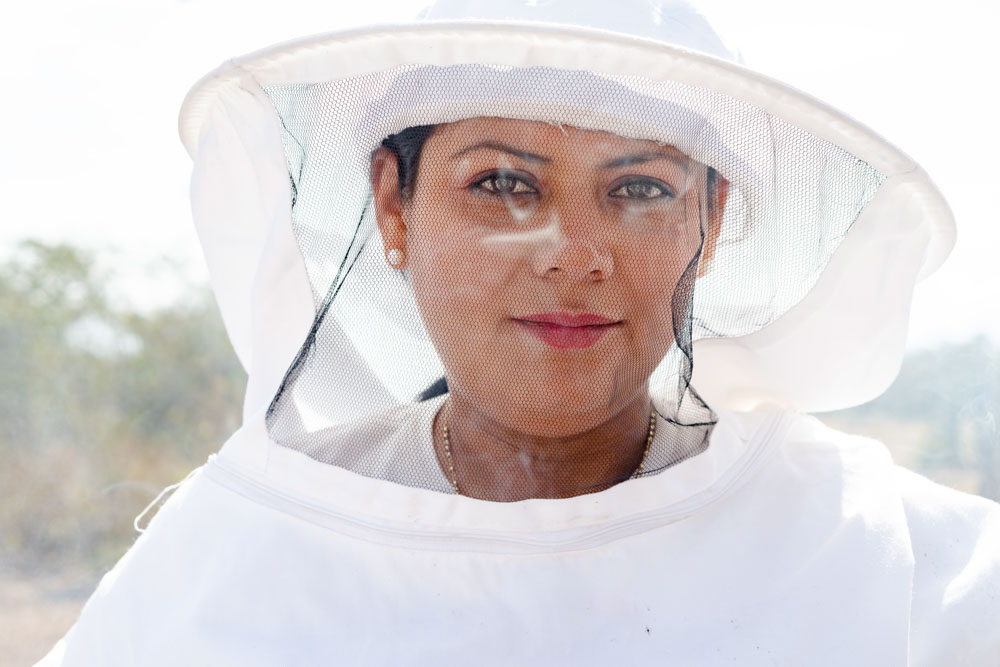
Carlos’ mother, Rosa, is one of the program’s participants. After Hurricane Mitch, Rosa and her her husband Ramón worked hard to bring their Olancho farm back from the brink, with Carlos sending money to help as often as he could. Today, the couple, along with Carlos’ daughter, Kellyn, raise dairy cows there. They also grow coffee, beans and corn. And now, with help from Leveraging Success, Rosa keeps honeybees.
For agricultural producers, strength comes, in part, through a diverse income stream: a farmer that cultivates a variety of crops and products is less likely to lose her or his income to the effects of climate change, market fluctuations or low production.
Agricultural and economic resilience, in other words, comes through diversity. And it comes through biodiversity, too. While beekeeping is helping Rosa and farmers like her across Honduras increase their incomes, it’s also helping them build more ecologically diverse and resilient farms and contribute to the health of the landscapes that surround them.
Like all insects, honeybees provide a variety of “ecosystem services” — and pollination is big among them. Along with wasps, flies, butterflies, beetles, bats and a host of other creatures, bees pollinate the world’s flowering plants, including some of the plants that grow in the pasture Rosa’s cows graze and the coffee shrubs she and her family grow, improving milk and coffee yields in the process.
In fact, three-fourths of the world’s flowering plants depend on animal pollinators to reproduce and 35% of the world’s plant-based food crops relies on pollinators to be successful. Yet, pollinator populations are declining around the world and the honeybee is no exception. Consequently, the benefits of pollination to crops, pastures and wild landscapes are also declining.

Keeping domestic bees is one way to boost pollinator populations. For example, one group in Honduras that is participating in Leveraging Success began with just 20 beehives. Today the group has 360 hives. Considering that a typical honeybee hive contains from 60,000 to 80,000 bees, that’s an increase of more than 20 million bees — more than 20 million pollinators, in other words.
Alongside ending poverty, working with smallholder farmers to protect biodiversity, including pollinator biodiversity, is among Heifer International’s goals.
To reach farmers throughout Honduras through the Leveraging Success project, Heifer has established 70 Farmer Field Schools across the country. By the project’s end in 2027, it plans to reach 48,500 Honduran families. The project encourages generational involvement — daughters, sons and grandchildren — to allow young people the opportunity Rosa wishes her son Carlos had had: to earn a livable income at home, on the farm, in Honduras, if they want to.
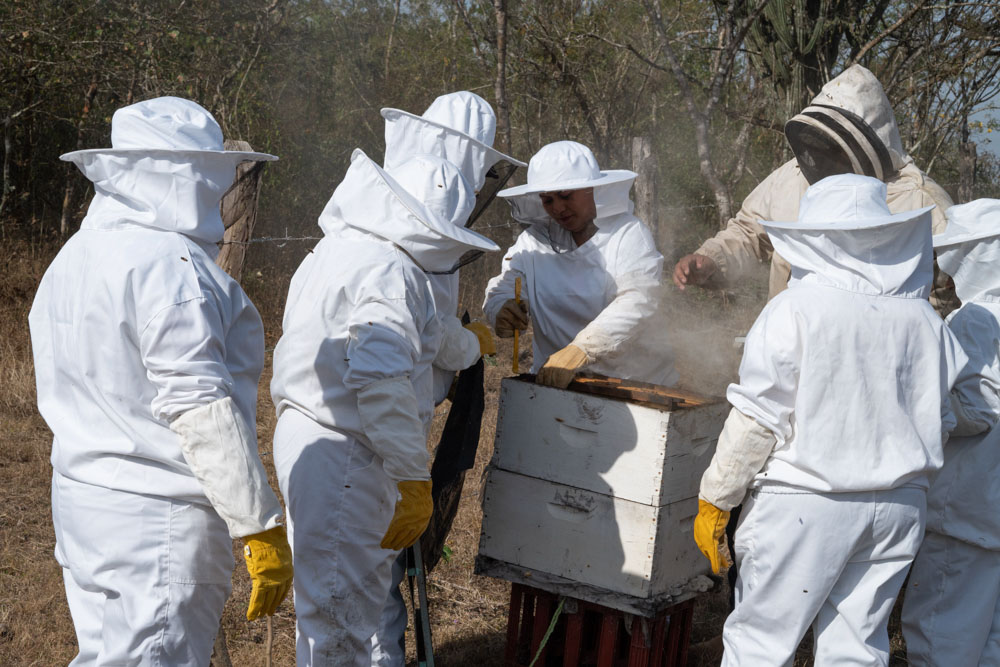
Across Honduras, participants in the project have received hives, beekeeping suits and other equipment, plus training: all of the ingredients they’d need to establish or grow their apiaries. In the department of El Paraíso alone, in 2023, Heifer Honduras trained more than 900 honey producers. At the same time, Heifer was training people to become beekeeping “promoters,” or lead beekeepers, preparing them to travel their regions helping other beekeepers improve their practices.
Promoters also offer continuing education for beekeepers through agricultural cooperatives and Farmer Field Schools, teaching hive management, bee health, good harvest practices, queen rearing, basic accounting systems and marketing. In 2023, a class of promoters-in-training from 20 municipalities in El Paraíso graduated from the promoter program. Of these, the majority are youth. Five are women who have their own apiaries.
With support from Heifer, beekeepers in El Paraíso improved their production in 2023 from 15 bottles of honey per hive to 25. Some producers reached averages of up to 35 bottles of honey per hive. Across El Paraíso, participants bottled 187,537 bottles of honey from 6,225 hives. Across Honduras, in the honey sector alone, Leveraging Success has, so far, helped generate nearly 8,000 permanent and temporary beekeeping jobs.
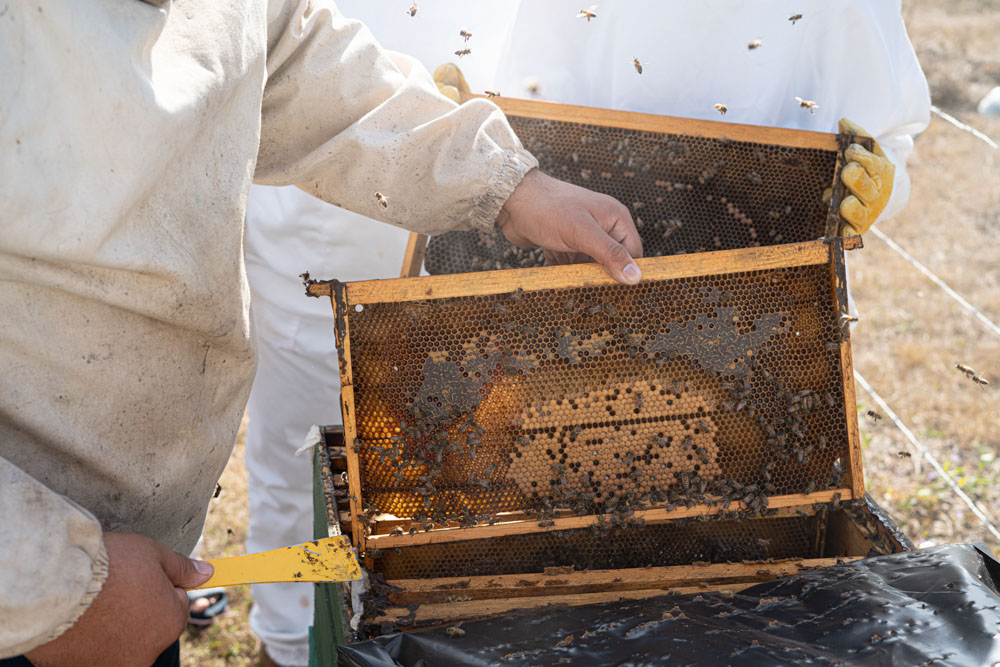
With support and training from Heifer, some producers are branching out beyond keeping bees, opening workshops where they build bee boxes, frames and lids, or sew beekeeping suits. Others are establishing beekeeping supply stores. The proliferation of beekeeping-related businesses has helped reduce the distance beekeepers must travel for materials and supplies; the shops also boost the economies in the communities in which they are located.
In the department of Colón, Heifer recently helped establish a new honey processing plant, which serves more than 200 beekeepers. In other regions, Heifer formed committees comprised of beekeepers to establish a regional honey brand and improve prices.
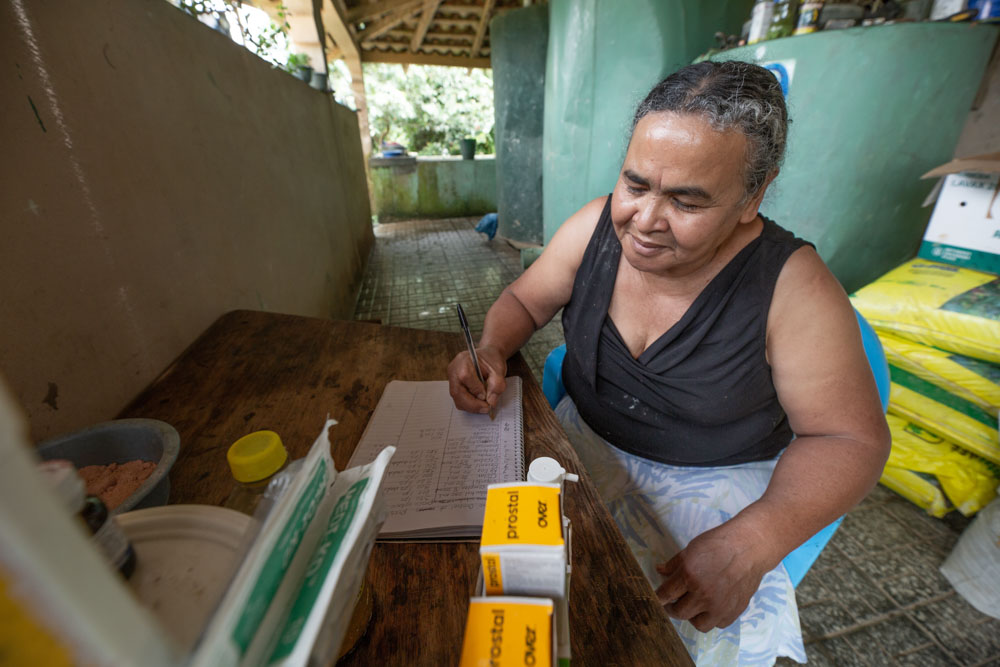
With her son Carlos in mind, and with help from Heifer, Rosa created a youth-led beekeeping initiative in Olancho. Today, she helps a group of young people manage more than a dozen beehives. In 2022, the group harvested 60 liters of honey, nearly 16 gallons, which they sold for 150 lempira, about $6, a liter. The group invested the profits in a rural bank where farmers pool their earnings and provide low-interest loans to each other. Eventually, the group will use their savings to expand their operations.
Henry Rodas, the beekeeping specialist for Heifer Honduras, is excited about the potential for beekeeping to help Hondurans earn a decent living, whether they dedicate themselves entirely to beekeeping or whether they keep bees to supplement their income.
“Beekeepers don’t need much time to work with the bees, so they can continue being coffee growers or livestock farmers, but they still gain from an accelerated level of income from the honey,” he said.
“With beekeeping, people can reach a living income faster than with other activities. So, from all the population that we have served, we have many success stories. … We even have some that have stopped being brick layers, have stopped being assistant carpenters and right now they are beekeepers and businessmen. They’ve became entrepreneurs with honey.”
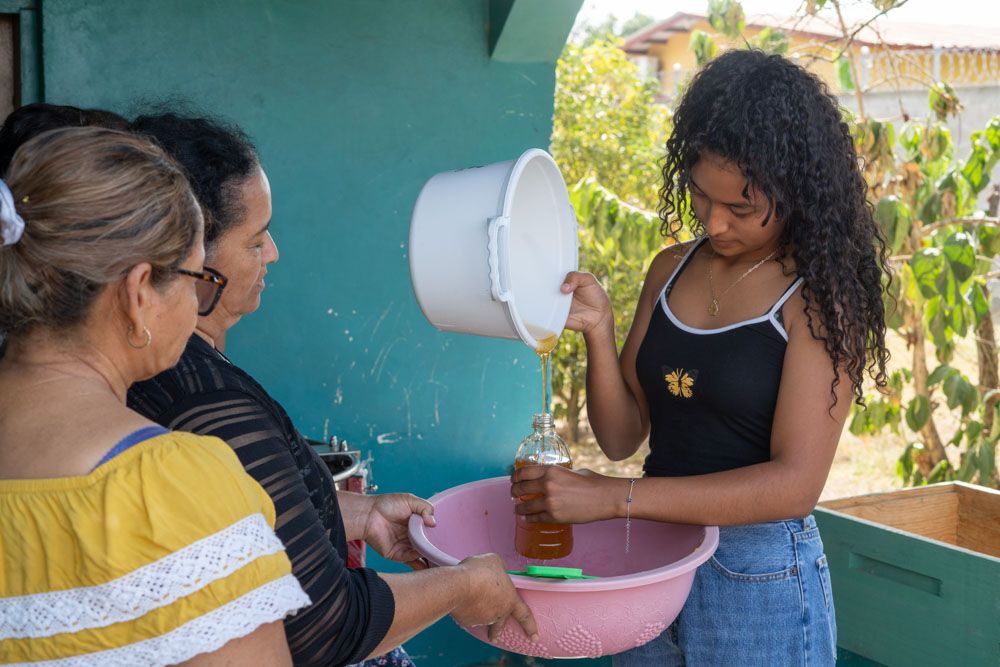
But Henry is particularly excited about the potential for beekeeping to help Honduras’ young people.
“The project is really for the children. Kids can say, ‘My parents have the land and I’m going to use it to raise bees and I’m going to take care of the water and the landscape.’ And then they earn income and it becomes even more appealing for them. They can contribute to buying things for their family and they can help pay for their studies and their sisters’ and brothers’ studies. They even have the chance to go to a park and eat a popsicle. That’s something that they couldn’t do before.”
Like honey, that’s a pretty sweet opportunity for Honduras’ young people.
Leveraging Success is a 10-year project that works to help close the “income gap” in Honduras, or the disparity between the money an average family earns and the money they actually need to live a dignified life, including access to adequate food, shelter, health care and education.
The average annual income of Heifer participant families in Honduras is $2,388. But a five-member family in Honduras requires $4,836 per year. Heifer’s goal with Leveraging Success is to help 48,500 families close that gap and earn a livable income through improved dairy and honey production.
The project also works with smallholder producers to improve their skills, develop market opportunities and boost their yields using techniques, like sustainable grazing, that also protect the environment.
Cart is empty
Success!
Please be patient while we send you to a confirmation page.
We are unable to process your request. Please try again, or view common solutions on our help page. You can also contact our Donor Services team at 855.9HUNGER (855.948.6437).
Covering the transaction fee helps offset processing and administrative fees that we incur through taking payments online. Covering the transaction fee for each payment helps offset processing and administrative fees that we incur through taking payments online. Covering the transaction fee for each payment helps offset processing and administrative fees that we incur through taking payments online.
Success!
Please be patient while we send you to a confirmation page.
We are unable to process your request. Please try again, or view common solutions on our help page. You can also contact our Donor Services team at 855.9HUNGER (855.948.6437).
When you donate a gift to someone, you'll have the option to create a free card after your donation is complete.
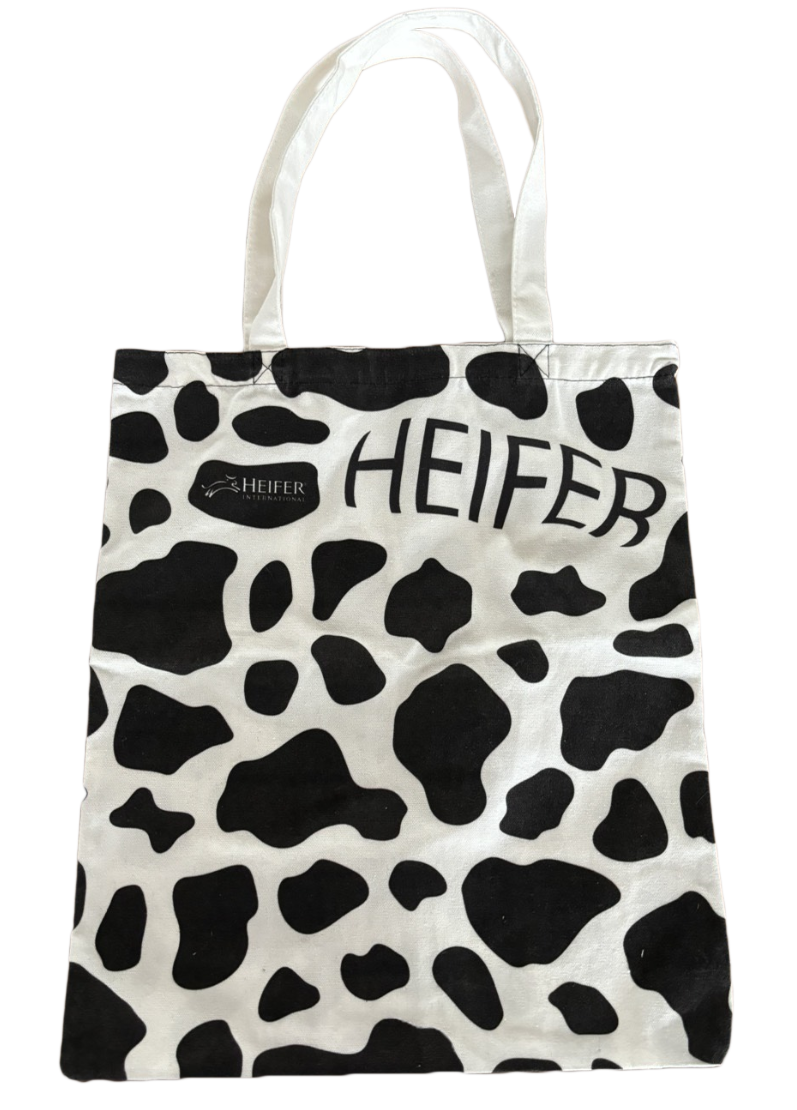
A FREE gift will be sent to supporters who choose to give a monthly gift.
Covering the transaction fee helps offset processing and administrative fees that we incur through taking payments online. Covering the transaction fee for each payment helps offset processing and administrative fees that we incur through taking payments online. Covering the transaction fee for each payment helps offset processing and administrative fees that we incur through taking payments online.

A FREE gift will be sent to supporters who choose to give a monthly gift.